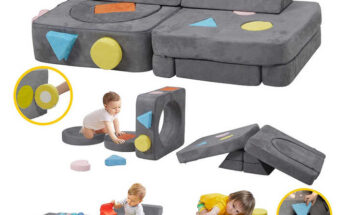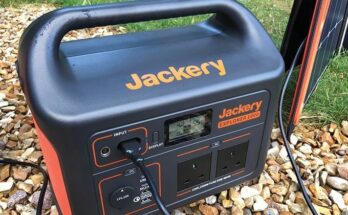Choosing the right material for your custom window frames is one of the biggest decisions you’ll make when upgrading or renovating your home. It’s not just about looks—your choice affects energy efficiency, durability, and maintenance in the long run. With so many options on the market, how do you know which one’s best for you?
Read More: Double Glazing Dundee
Whether you’re after a sleek modern look, something traditional, or a balance between affordability and performance, this guide will walk you through the top materials for custom window frames, their pros and cons, and who they’re best suited for.
Why Your Window Frame Material Matters
Before diving into the different materials, let’s talk about why your choice is so important. A window frame does more than just hold the glass in place—it plays a key role in insulation, weatherproofing, and even the overall look of your home. Here’s why it matters:
- Energy Efficiency – Some materials insulate better than others, helping to keep your home warm in winter and cool in summer.
- Durability & Longevity – The British weather isn’t always kind. The right material will withstand the elements without rotting, warping, or deteriorating too quickly.
- Aesthetics – Your window frames contribute massively to your home’s character. Whether you prefer a classic or modern look, the material you choose will influence the final appearance.
- Maintenance Needs – Do you want a low-maintenance option, or are you happy to repaint and refinish your windows every few years?
Now, let’s break down the best materials for custom window frames so you can make an informed decision.
1. uPVC: Affordable, Energy-Efficient, and Low Maintenance
If you’re looking for a cost-effective option that doesn’t require much upkeep, uPVC (unplasticised polyvinyl chloride) is a solid choice. This material has become incredibly popular in the UK because it offers great insulation, is resistant to weather damage, and doesn’t require repainting or refinishing.
Pros of uPVC Windows
✔ Excellent thermal insulation – Keeps your home warmer in winter and cooler in summer.
✔ Resistant to rot, rust, and warping – Perfect for the UK’s damp climate.
✔ Low maintenance – No need to repaint, just a quick wipe-down now and then.
✔ Customisable – Available in a wide range of colours, including woodgrain finishes.
✔ Budget-friendly – More affordable than aluminium and timber.
Cons of uPVC Windows
✘ Not as strong as aluminium – The frames need to be slightly thicker for stability.
✘ Can look less premium – While modern finishes have improved massively, some homeowners still prefer the natural charm of timber.
✘ Less eco-friendly – Although recyclable, it’s not as sustainable as wood.
💡 Pro Tip: If you want a traditional look with all the benefits of modern materials, consider high-quality bespoke sash windows by Quickslide. They offer the timeless charm of classic sash windows with the energy efficiency and durability of uPVC.
Best for: Homeowners looking for an affordable, low-maintenance solution with great insulation.
2. Aluminium: Sleek, Durable, and Modern
Aluminium windows are a fantastic choice if you love a modern, minimalist look. They’re strong, lightweight, and offer ultra-slim frames, which means you get more glass and less bulk.
Pros of Aluminium Windows
✔ Sleek and contemporary – Perfect for modern homes or extensions.
✔ Highly durable and weather-resistant – Won’t warp, rot, or rust.
✔ Slimline frames – More glass, better views, and increased natural light.
✔ Customisable – Powder-coated in a range of colours, so no need for repainting.
✔ Low maintenance – A simple clean every so often is all they need.
Cons of Aluminium Windows
✘ More expensive than uPVC – But worth it for the longevity and premium feel.
✘ Conducts heat and cold – However, modern aluminium windows come with thermal breaks to improve insulation.
💡 If you love that ‘Grand Designs’ style, aluminium windows are a no-brainer. They’re particularly great for large feature windows or homes with a contemporary aesthetic.
Best for: Homeowners wanting a stylish, durable, and modern look.
3. Timber: Classic, Timeless, and Eco-Friendly
For those who want the most authentic, traditional look, timber is unbeatable. It’s been used for centuries and remains a favourite for period properties and conservation areas.
Pros of Timber Windows
✔ Beautiful natural aesthetic – Adds warmth and character to any home.
✔ Sustainable and eco-friendly – Responsibly sourced wood is a great green choice.
✔ Naturally insulating – Keeps your home warm and reduces noise.
✔ Customisable – Can be painted or stained to suit your style.
Cons of Timber Windows
✘ High maintenance – Needs regular painting or staining to prevent weather damage.
✘ More expensive than uPVC – But can last for decades with proper care.
✘ Prone to rot if not maintained – Needs more attention in damp climates.
💡 If you live in a period home, timber windows are often the best (or sometimes the only) option allowed by planning regulations. But they do require more care than uPVC or aluminium.
Best for: Homeowners who value aesthetics and don’t mind the upkeep.
4. Composite: The Best of Both Worlds
If you can’t decide between timber and aluminium, composite windows offer a great balance. These feature a timber interior for warmth and insulation, with a weatherproof aluminium exterior for durability.
Pros of Composite Windows
✔ Great insulation – The timber core helps keep your home warm.
✔ Weather-resistant exterior – The aluminium cladding protects against the elements.
✔ Low maintenance – No need to repaint or refinish.
✔ Stylish and modern – Ideal for contemporary homes.
Cons of Composite Windows
✘ Expensive – One of the priciest options on the market.
✘ Limited customisation – Since the exterior is aluminium, you can’t easily repaint it like traditional timber.
💡 Think of composite windows as a ‘best of both worlds’ solution. They give you the warmth and beauty of wood without the constant upkeep.
Best for: Homeowners who want the natural charm of timber but with added durability.
Final Thoughts: Which Window Frame Material is Right for You?
- If you want affordable, low-maintenance, and energy-efficient windows → Go for uPVC.
- If you prefer modern, sleek, and durable frames → Choose aluminium.
- If you love traditional charm and don’t mind maintenance → Opt for timber.
- If you want a premium option with the best of both worlds → Consider composite.
Ultimately, the best material depends on your budget, style, and how much maintenance you’re willing to do. If you’re still unsure, talk to a window specialist who can recommend the best option for your home.
Whatever you choose, investing in high-quality bespoke windows will add value, comfort, and style to your home for years to come!



